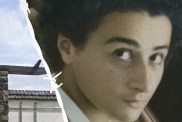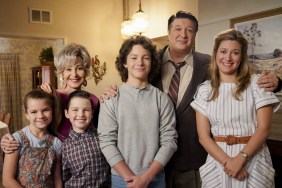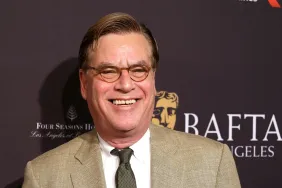Since making his debut with Strictly Ballroom over twenty years ago, Australia’s premiere auteur filmmaker Baz Lurhmann has taken meticulous time with each of his projects and while that’s culminated in just five films within those twenty years, it’s led to some of the most distinctly unique films that often defy comparisons. At the same time, Luhrmann’s embraced classical filmmaking styles that harked back to some of the greatest films of the ’30s and ’40, this unique vision culminating in the 2001 musical Moulin Rouge!, starring Nicole Kidman and Ewan McGregor, which took both their careers to a new level.
While the filmmaker’s work does huge business internationally, especially in Australia and the United Kingdom, in North America he’s still considered an acquired taste with none of his movies doing huge business. And yet, it’s certainly not because he doesn’t get offers to make big Hollywood movies – can you imagine how amazing Harry Potter and the Sorcerer’s Stone might have been with Luhrmann’s vision?
Who knows if that will change with his adaptation of F. Scott Fitzgerald’s The Great Gatsby, only his second adaptation following 1996’s Romeo + Juliet and possibly his most American film to date. The key thing is that it reunites him with that movie’s star Leonardo DiCaprio after 17 years, having had the foresight to hire the young actor before he starred in James Cameron’s Titanic. The rest of the cast includes Tobey Maguire as Nick Carraway, the book’s pseudo-narrator, Carey Mulligan as Daisy Buchanan and a slew of Australian talent including Joel Edgerton, Isla Fisher and Jason Clarke.
In one of the most long-anticipated interviews of this writer’s ten-year career, ComingSoon.net got on the phone with Baz Luhrmann last week to talk about his foray into F. Scott Fitzgerald, his reunion with Leonardo DiCaprio after 17 years and the legacy of Moulin Rouge!, which point of fact is this writer’s #3 movie of all time.
ComingSoon.net: Just about every English student has read F. Scott Fitzgerald because it’s mandatory reading in a lot of schools. So were you really impacted by it?
Baz Luhrmann: No, actually, my big story is we ran a local cinema for a short time. My dad, when I was a kid in my saw Redford in “Butch Cassidy and the Sundance Kid.” I went, “Well, that is the coolest person I’ve ever seen,” and the sidekick isn’t bad either. Then “The Sting,” and then I remember seeing “Gatsby,” but not really understanding who Gatsby was. Now, it’s kind of a well known story that I’m telling at the moment, but what happens is that after “Moulin Rouge!,” I had to sort of debrief and I go to meet my wife in Paris and I went on a Tran-Siberian railway. On that railway trip, I was a bit lonely, so I just sort of poured myself some wine and I played a recorded version of “The Great Gatsby,” and I just went, “Wow, I didn’t know this book at all.” I guess the key thing was that I just realized it was us now, and I knew those people. As a 40 year old, it speaks to you in a different way than say a 17 year old. As a 16 year old, it speaks differently than a 40 year old. I just thought that if you could unlock a way of externalizing Nick Carraway’s internal telling than there was a different kind of movie to get made. That was the beginning of a 10-year journey – getting the rights, convincing studios to fund it, and getting everyone to take the risk and to go there, and here I am. It’s done.
CS: So who would you consider a Gatsby-esque character for today? Maybe P. Diddy or someone like that?
Luhrmann: It’s interesting you mention those guys because in different ways, like I think we know we’re surrounded by characters–we’ve seen them–who have sudden and spectacular wealth, they kind of put on amazing parties, and there might be a bit of a question mark about where they get their money from, but we still go to their parties. There’s that kind of character, but more specifically, someone like Jay-Z, or my own journey, or Diddy. They are guys that came from humble beginnings, and they’ve obviously had a vision of their life and they’ve been pursuing their own green lights. I think those gentlemen really relate to the journey because there’s a thing about that little boy–and you haven’t seen the film yet–but in the film, you see young Gats as a child having the vision. He didn’t even think his parents were his own, but he already had the script of his life written out. What happens is, he’s written the script of his life, and when someone tries to do a rewrite, like he falls in love and he says, “You can’t repeat the past. Don’t rewrite my vision.” Then you’re wedded to tragedy, you know? So I think there are characters, definitely. I think there are parallels in terms of characters who have seen a vision of their life and pursue it relentlessly.

CS: Which of the characters were you able to relate to most? I think most people would assume Gatbsy, but is that not the case?
Luhrmann: You know what, Ed? I’m old enough to admit that – when you see the film, people get this, because enough people have seen it now to understand the road we’ve gone on. You’ll see this little boy, I was the little boy, and I can’t deny – and it sounds hugely pretentious, and I’m not trying to sound pretentious because I just sound like an idiot no matter what – I know that I was in an isolated place and I know I saw a big life ahead of me. I’d been running in pursuit of that life ever since. Having said that, I really relate to the idea of Nick Carraway, who is both within and without. He’s in his life and he observes it and he tells a story about it. I relate to both those ends of the spectrum, if you like. This is what great art does for us. It’s a siphon for all of us. I mean, Fitzgerald himself is probably in every character in some little way.
CS: Was this a tough nut to crack for you in adapting it and figuring out exactly how to get the book to a point where modern audiences–whether they’ve read the book or not–watching the movie understand the story without having to be faithful to what F. Scott did. Was that a tough thing to do? I know it took a lot of time to get the rights, but did it take a long time to write as well?
Luhrmann: The writing part – it starts with a deep understanding of the text. I became F. Scott Fitzgerald to a certain degree. You know, we lived that life. We did such profound research. All the decisions, even the stuff that people might roll their eyeballs about – 3D. Fitzgerald was really obsessed with cinema and modernism and he put very modern cinematic techniques in his book. I would liken him to see “Dial M for Murder,” the ’60s 3D films. Yeah, have you seen them on the original projectors?
CS: That’s funny you should mention that because that regularly plays at the Film Forum in New York – just played there a couple weeks back.
Luhrmann: Oh wow, great. Yeah, because when you see it, what you see is that the actors draw you in. It isn’t about stuff coming out of the screen. So I went, “Well, if Fitzgerald was here making a movie, what choices might he make?” The other thing is music. Look, he put African American street music in his book – he put popular songs in his book. It made the book immediate. It made it now. People say, “Why are you putting this stuff called jazz in your book?” No matter how you feel about traditional jazz–I grew up around a lot of it–it’s classical music, it really is. I wanted that music to feel in the film as immediate as jazz did in ’25. You know, if Fitzgerald lived in what you might define as the jazz age, we live in the hip-hop age, and that drew me to Jay-Z. That collaboration, I think it really helped unlock code for the audience seeing it now to feel what it was like to be in the roaring ’20s. You know, it wasn’t the polite ’20s.
CS: So a lot of that music is actually being used at the party scenes, rather than it being used like a musical. It’s still driven by dialogue and character?
Luhrmann: Actually, when you see it, Ed, I think you’ll be surprised how linear it is. Other than one device, which we got from Fitzgerald’s notes at the end of “The Last Tycoon”–which I won’t spoil it for you because it might be a bit of a surprise–but did Nick Carraway actually write the book? Other than that, we’re extremely linear to the book. It was just a question of what not to put in. What could we live without? Well, you might love the scene in the elevator after Myrtle’s apartment, but can you live without the scene? They were the big issues.
CS: Obviously you worked with Leo very early on in his career which is I guess 17 years ago, which is pretty amazing.
Luhrmann: At least that.

CS: What was the conversation like when you decided to do this? Were you immediately like, “Leo has to play Gatsby. I’m going to go talk to him.” I assume you guys stayed in touch over the years.
Luhrmann: We’ve been extremely close good friends over the years, and I mean, his friends are my friends and his parents I adore, and they’re very good friends of mine. It wasn’t a quick conversation. Leonardo was a gifted young man then, and now he’s a man, and he’s completely in control of his instrument, which when it comes to acting, it’s a Stradivarius. He played that Stradivarius in such a refined manner. Now, having said that, he can be a lot of fun. He’s a warm, warm guy – which is hard to hear because no one wants to hear Leonardo has all of that and he’s a warm, good guy, but he is. But when it comes to acting on the planet we live on, it’s a moment of deep consideration and he doesn’t take it lightly. It was an extremely long process to get him to take the leap. I will say that Tobey Maguire was a big part of it. Early on – and I would have thought of Tobey for the role anyway, but the idea of their friendship being part of the deal, Tobey’s support for Leonardo to take such a big leap. I mean, look, I think just think it’s the American “Hamlet.” When you’re going to take on the American “Hamlet,” you’ve gotta be calling in a lot of attention and a lot of focus and it’s not a step you take lightly. Leonardo does nothing concerning acting lightly.
CS: I’m actually shocked he hasn’t won an Oscar. He’s still fairly young, but everything he’s done since “Romeo + Juliet,” he hasn’t missed a mark. Every movie he’s made has been a solid movie, which is amazing that it hasn’t happened for him yet.
Luhrmann: I agree with you, and more, I’ll tell you something else, I don’t think he’s stepped off the mark in his life. What I mean is, if you have that much fame and if you have that much success, usually by now you’re a nutcase. Usually, you’re a legend, but you’re also crazy. Because he’s surrounded by
he’s got continuity. When he first came to Australia when he was 19, he cashed in his business class tickets and brought all his friends. A lot of that ridiculous mythology you read about is actually just Leonardo bringing his friends with him, you know? Because the boys have remained friends and all those guys that I’ve known all those years, and that his parents have been there for him, he’s had context. Although he is extremely mature and he’s extremely worldly when it comes to his work and the world at large, he’s also quite normal. He’s warm and normal, and people don’t want to hear that he’s normal.
CS: It’s funny because I’ve met and talked to both Tom Cruise and Matt Damon and I found that they’re very easy to talk to face to face, so it’s weird how star power and celebrity mutates and affects other people more than it does them.
Luhrmann: You know, you couldn’t have said it better because the weird thing
it’s actually more the weirdness it brings out in others. I’ve been with perfectly highly regarded, mature, powerful people, and a famous actor walks into the room and they turn into sort of nut-bags, you know? You go, “Oh yeah, yeah, that’s right.” You know what I mean? It’s strange about the relationship with celebrity, which by the way, it actually began in Fitzgerald’s time.
CS: Of course, believe me, I know. It’s very ironic. That’s why this is such a great movie to becoming out right now. It seems very timely in some ways even thought it takes place in the ’20s. I feel like between this, “Australia” and “Moulin Rouge!,” I got the impression that you would have been more comfortable making movies in the ’30s or ’40s? Do you feel if you were in that time, you’d be making a movie every year?
Luhrmann: I don’t know. Well, if I was making movies in the ’40s, all I’d probably be doing is directing and someone else would edit them and I’d be making three a week.
CS: That’s true, yeah.
Luhrmann: I mean, not exactly. There were great auteurs in the ’40s, but I think there’s something about the classicism of those films. I’m trying to look at that classicism, but in a modern way, in a modern lens. You know, we worked with Miucca Prada, who is an old friend on the costumes and had a great collaboration with her, but she does that with clothing. She looks to classical clothing, but she re-imagines it in a modern way. No doubt about it, I’m interested in the big gesture and the big emotion and the big psychology. You know, I always say that I’d love to have people running around in jeans and a t-shirt in a contemporary drama, but I might want to do that, but I do what I NEED to do, meaning what’s going to advance my own personal journey, what’s going to challenge me. So I seem to be–and I just seem to be stuck and wedded to these grand old tragic romantics–and I’m not entirely sure why.

CS: I’ve talked to a lot filmmakers about the difference between filmmaking as art and commerce, making a movie for the sake of art vs. making a movie in order to make its money back, pay the investors, etc. You’re an interesting case because in between films, you’ve done commercial work in fashion yet even those commercials are so beautiful they never take away from you being considered a filmmaking auteur.
Luhrmann: Well, Ed, I’ve only made one.
CS: I was thinking of the shorts you did recently.
Luhrmann: Oh, I did it as a favor to Miucci Prada for free for the Met, the Costume Institute just because she was so nervous and I said, “Okay, I’ll do that for you,” just to help her out as a friend. It wasn’t financial. But I did the Chanel and that was like working with an opera company. There was no advertising company involved. I don’t want to be negative about that, but I treated that commercial I did for Chanel, and then I was making a movie. Really, it was more like a trailer for a movie that had never been made. That was my philosophy.
CS: Interesting. I was wondering how you felt about that dichotomy.
Luhrmann: Well, I tell you what. I can tell you now that, I certainly have been offered a lot of very well known movies where we would have mad ourselves very rich very quickly. We consider that we’re wealthy in life experience, so I don’t know that all my choices have been the smartest commercial ideas, but they’ve all been about what I do feel compelled and what I love to do, creatively. That’s always been where it’s coming from, you know? We definitely could be cash richer than we are because of the things that have come our way, and every now and then I say, “Oh, maybe I should just say yes next time someone says ‘Harry Potter’ again.”
CS: Well if they offered you to do “Harry Potter” I’d want you to do all eight movies.
Luhrmann: I was actually offered the first one.
CS: Yeah, I truly believe it. I want to talk about the influence of “Moulin Rouge!” It’s been about 12 years and it was very much part of the movie musical revival, which is great, because I love movie musicals. There are movies like Joe Wright’s “Anna Karenina,” which was very much influenced by it in some ways and there are other things. Do you feel like it paved the way for all these other films or do you feel like that was part of your life then and you’re doing something different now?
Luhrmann: That’s a good question. If you’re saying, “Would I do another musicaI?” Yes. Do I feel good that I left something that somehow has made an impression on culture and that other people have either been influenced by? I think that’s just a good sign in what you’re making is useful. I feel thrilled about that, you know? I mean, my work didn’t come from nowhere. The Beatles’ music didn’t come from nowhere, it came from American rhythm and blues. It came from America, and they did their English version of rock and roll and that became The Beatles. I think if you’re going to make anything that’s your own, it comes from somewhere and you eventually have to go your own way and then someone takes that as a starting point and an influence, so I feel thrilled about that. But I’m always hoping to move on to do something that is growth, that is some sort of step forward. Having said that, occasionally I go, “I’m just going to do something simple, quick, and fun.” I know in my heart that when you try and get away from yourself it ends up being just as hard. In truth, I know I’m wedded to who I am. I just must really be better at serving or curating the truth of who I am and what I do.
CS: This will be my last question. So for the morons who live in New York but made the mistake of missing your “La Boheme” on Broadway, is there ever a chance of doing a revival of it?
Luhrmann: I won’t revive “La Boheme” but right now I am working on “Strictly Ballroom,” a live version of that, and I will be doing that in Australia and it should come to the States. Probably, I might – I gotta be really clear about it, I MIGHT do “Moulin Rouge!” as a live stage show. The funny thing about “La Boheme,” is that I felt like I’d done “La Boheme” for 20 years, and I’m not doing it again, and then of course, it came back. So you know what? I’ve learned never to say never.
CS: Right, because there were also elements of “Moulin Rouge!,” which came from “La Boheme.”
Luhrmann: Absolutely. Oh yes, yes. It was largely the study of “La Boheme” that plugged me into that whole idea and that whole world. That’s absolutely true.
The Great Gatsby opens in 3D and 2D theaters on May 10.









